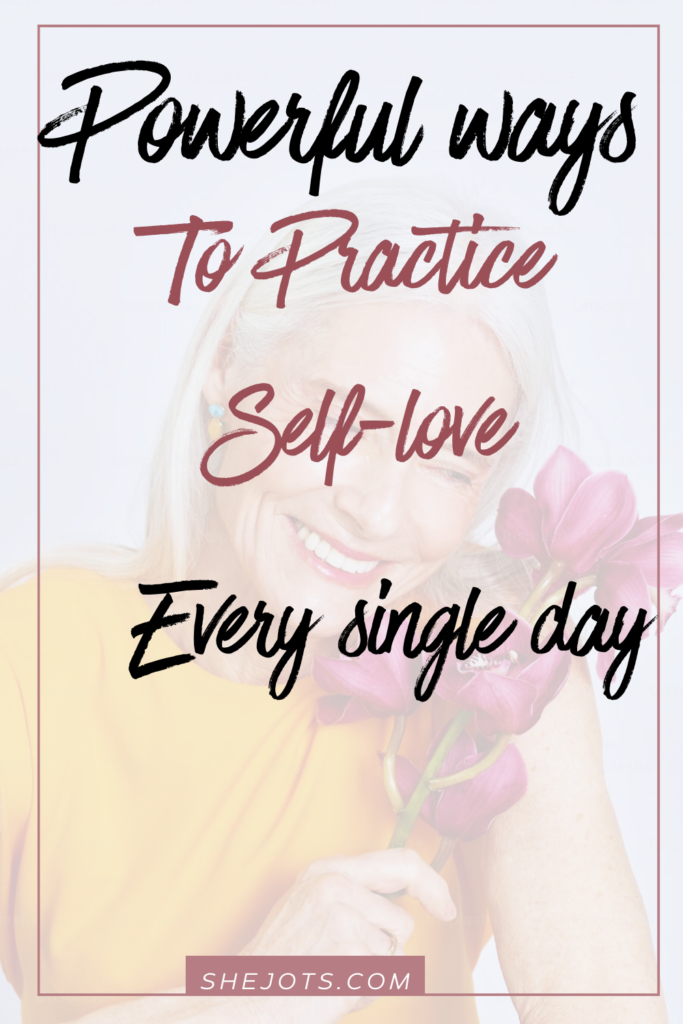
Thinking about Self-love ? Let's talk about it should we !
So, things got a bit stuck again, and now you're trying to figure out where to start over. It's cool that you're thinking about what's going on inside you before dealing with the stuff outside.
When life feels a bit messy, taking a moment to think about your feelings and what you can help. So it's crucial to take a moment and focus on the most important relationship of all, the one we have with ourselves.
How's the relationship with yourself ? Does it help to deal with your feelings, thoughts and personal emotions?
Reflecting on your thoughts, emotions, and aspirations allows you to understand the roots of your challenges and unearth the seeds of resilience within you.
Think of this moment not as a problem but as a pit stop in your journey. Take a break, think about what you want, and be kind to yourself. Understanding yourself is like having a map for the road ahead.
Consider this moment not as a setback, but as a pit stop in the grand race of life. Take a breather, reassess your goals, and nurture the flame of self-love within. Your internal journey is the foundation upon which the external world is built. By understanding yourself, your desires, and your strengths, you're better equipped to tackle the challenges that lie ahead.
And simply that is self-awareness and self-compassion.
And that is what made me share this with you today to explore the profound concept of self-love. What exactly is self-love, and why is it crucial in our lives?
How do you develop self-love? Why is self-love so hard?
Simple powerful steps to love yourself again?
Let's dive into this...
Life is a magnificent journey filled with ups and downs, and sometimes, we forget to be our own biggest supporters. In the midst of the chaos, it's easy to lose sight of the incredible person staring back at us in the mirror. So, let's take a moment to reconnect with that person—YOU.
What does self-love mean?
Self-love is more than just a catchphrase or a trending hashtag on social media. It's a deep and genuine appreciation for yourself.
Self-love is like being your own best friend. It's about treating yourself with kindness, understanding, and acceptance, just like you would with someone you care about. When you love yourself, you appreciate your strengths and forgive your flaws. It means taking care of your physical and mental well-being, setting boundaries, and doing things that make you happy. Self-love isn't about being perfect; it's about embracing your imperfections and recognizing your worth. It's a journey of understanding, respecting, and nurturing yourself, ultimately leading to a positive and fulfilling relationship with the most important person in your life – you.

How to Love Yourself Again?
Life can be challenging, and it's easy to lose sight of our own worth amidst the chaos.
Loving yourself again is a journey, not a destination. Embracing self-love is not just a fleeting trend; it's a profound and ongoing journey. It's about recognizing your worth, celebrating your uniqueness, and fostering a deep, unwavering connection with yourself.
I want you to know that you are worthy of love, not just from others but from yourself. Your quirks, your strengths, your journey every bit of it contributes to the beautiful tapestry of who you are. In this fast-paced world, let's slow down for a moment and acknowledge the incredible soul that resides within you.
As you delve into the articles and insights about self-love, I invite you to be kind to yourself. Give yourself the grace you readily offer to others. Understand that self-love is not about perfection; it's about embracing the perfectly imperfect person that you are.
Throughout this journey, you'll discover the power of positive self-talk, the freedom that comes with setting healthy boundaries, and the joy of embracing your unique qualities. It's about finding strength in vulnerability, practicing self-compassion in times of difficulty, and cultivating a mindset that uplifts and empowers.
Here are a few steps to help you reconnect with the most important person in your life — you:
Cultivate Mindfulness & Self-Reflection
Take time for self-reflection and mindfulness. Understand your thoughts and feelings without judgment. This can help you gain a deeper understanding of yourself.
This will also help you to know yourself , discover and understand well. It involves exploring your thoughts, emotions, values, strengths, weaknesses, and motivations. Reflecting on them will help you find your way again to love yourself and understand your internal world.
Consider what matters most to you in life. These could be principles, beliefs, or aspects that guide your decisions and actions.
Mindfulness involves being fully present in the current moment. It helps you develop a heightened awareness of your thoughts and actions.
Practice mindfulness through activities like mindful breathing, observing your surroundings, or engaging in activities with full concentration.
Forgive yourself
Holding onto guilt or shame can weigh you down. Forgiving yourself is a step towards healing.
Understand that everyone makes mistakes. Learn from them, but don't let them define you.
Embrace the lessons that come from your mistakes, and don't forget that they are opportunities for growth and self-improvement.
Be kind to yourself
Treating yourself with kindness means understanding that you're human. Everyone makes mistakes and has tough days.
Instead of being hard on yourself, talk to yourself like you would to a friend. Offer encouragement and support.
Treat yourself with the same kindness and understanding that you would offer to a friend facing difficulties. Remember that making mistakes and facing challenges are part of being human.
Cultivating Gratitude
Cultivating gratitude is a powerful practice that can bring positivity and contentment into yourself internally which affects your whole life .
Start your day by thinking about three things you're thankful for. It sets a positive tone and helps you approach the day with a grateful mindset.
Don't hesitate to express gratitude to others. Let people know that they've made a positive impact on your life. It not only benefits you but strengthens your relationships.
Create a gratitude jar and drop in notes about things you're thankful for. Over time, you can revisit these notes for a boost of positivity.
Take a moment to appreciate simple pleasures, like a warm cup of tea, a beautiful sunset, or a kind gesture from someone. Mindful appreciation enhances your connection with the present moment.
Radical Acceptance
Radical acceptance involves acknowledging the reality of a situation without attaching negative judgments to it. It's about letting go of the "shoulds" and "shouldn'ts" and embracing what is.
Radical acceptance is a bit like embracing the reality of life with open arms, even when it's tough. It's acknowledging that some things are beyond our control, and instead of wrestling with those things, it's about finding a way to make peace with them.
We often find ourselves caught up in wishing things were different, dwelling on how they used to be or how we hope they'll be in the future. Radical acceptance nudges us to step out of that struggle, to stop fighting against the reality of the present, and to find a more serene way of facing things.
It's not about liking every situation; it's about acknowledging it without getting trapped in the emotional turmoil that comes with denial or resistance. Think of it as a mental shift from "Why is this happening to me?" to "This is happening, how can I best respond to it?"
So you start within yourself , Self-acceptance is like giving yourself a warm embrace, flaws and all. It's the art of recognizing and embracing your true self, without harsh judgment or unrealistic expectations. When you truly accept yourself, you create a space for authenticity and self-love to flourish.
Prioritize Self-Care
Take care of your physical, emotional, and mental well-being. Prioritize adequate sleep, nutritious food, and regular exercise to boost your overall health.
Taking care of your body is a fundamental aspect of self-care. Proper nutrition, regular exercise, and sufficient rest contribute to physical well-being.
Your mental health is just as important as your physical health. Self-care practices, such as mindfulness, meditation, and relaxation techniques, can help manage stress and promote mental clarity.
When you prioritize self-care, you build emotional resilience. It allows you to navigate challenges with a greater sense of calm and balance.
You may also notice that regular self-care helps prevent burnout. It's a way of refueling your energy and preventing the exhaustion that can come from continuous stress and demands.
Nurture Your Passions
Passions are like seeds within you waiting to grow into something beautiful. Nurturing them not only brings joy and fulfillment but also adds a unique and vibrant flavor to your life.
Pursuing your passions brings a sense of joy and enthusiasm. It's about engaging in activities that light up your soul and make you feel alive.
Your passions are often tied to your values and interests. Nurturing them contributes to a deeper sense of personal fulfillment and purpose.
Engaging in activities you're passionate about can be a powerful stress reliever. It's a way of immersing yourself in something you love, temporarily escaping the pressures of daily life.
Exploring and nurturing your passions is a journey of self-discovery. It allows you to uncover hidden talents, preferences, and aspects of yourself you might not have fully realized.
Passionate pursuits often involve continuous learning and growth. It keeps your mind active, curious, and open to new possibilities
Whether your passion lies in a hobby, a creative pursuit, or a cause you deeply care about, taking steps to nurture it is an investment in your own happiness and well-being.
Positive Affirmations
Positive affirmations are like little notes of encouragement for your mind, helping to cultivate a positive and optimistic outlook. Incorporating them into your daily routine can have powerful effects on your mindset and overall well-being.
Positive affirmations work by shifting your mindset from self-doubt and negativity to confidence and positivity. It's about rewiring your thought patterns.
Affirmations are a way of being your own biggest cheerleader. They provide a supportive voice during challenging times and encourage self-compassion.
Positive affirmations for self-love can help foster a sense of appreciation and acceptance for who you are.
Here are some examples that I have recently adopted into my daily routine:
- I am worthy of love and kindness.
- I accept and love myself unconditionally.
- My worth is not determined by external validation; I am enough as I am.
- I am deserving of all the good things life has to offer.
- I embrace my imperfections; they make me unique and special.
- I love the person I am becoming.
Invest in Personal Development
Personal development allows you to explore and understand different aspects of yourself, while self-love encourages acceptance and appreciation for the person you discover.
Personal development involves a commitment to continuous learning. Embrace new knowledge, skills, and perspectives to expand your understanding of yourself and the world around you.
Learn to Let Go
Letting go is rooted in the understanding that life is inherently impermanent. Accepting the ebb and flow of experiences helps you navigate change with greater ease.
Often, we hold on tightly to things we cannot control. Letting go involves relinquishing the need for absolute control and trusting that things will work out as they are meant to.
Learning to let go enhances your resilience. It's about bouncing back from setbacks, adapting to change, and finding strength in the face of challenges.
Holding onto past grievances, mistakes, or regrets can weigh heavily on your present. Letting go of the past liberates you, allowing space for new opportunities and growth.

Connect with Nature
Nature encourages mindfulness – being fully present in the moment. The sights, sounds, and scents of the natural world provide a grounding experience. Connecting with nature is a profound and rejuvenating experience that can bring peace, joy, and a sense of interconnectedness.
Nature has a remarkable ability to restore and rejuvenate both the mind and body. Spending time in natural settings allows you to recharge and find balance.
The tranquility of nature has a calming effect on the nervous system, reducing stress and promoting overall well-being.
Practice Gracious Self-Talk
Begin your day with a positive affirmation or a kind statement to set a positive tone. For example, "Today, I choose to approach challenges with a positive mindset."
Imagine you're speaking to a friend facing a similar situation. Extend the same kindness, encouragement, and support to yourself that you would offer to them.
When negative thoughts arise, challenge and reframe them. For instance, if you catch yourself thinking, "I can't do this," reframe it as, "I may face challenges, but I have the skills to overcome them."
Pay attention to moments of self-criticism. Instead of being harsh, respond with understanding and encouragement. Treat yourself with the same kindness you would extend to a friend.
Set Realistic Goals
Setting realistic goals helps prevent burnout and overwhelm. Unrealistic expectations can lead to stress, while achievable goals promote a healthy and sustainable pace.
Ensure that your goals align with your values and priorities. This ensures that the pursuit of your goals is meaningful and fulfilling. Achievable goals create motivation. When you see progress and attainable milestones, you're more likely to stay committed to the journey.
Set Healthy Boundaries
Clear boundaries contribute to emotional well-being. They help prevent burnout, stress, and emotional exhaustion by creating space for self-reflection and self-care.
Setting boundaries is an act of self-respect. It communicates to yourself and others that you value your needs and are willing to protect them.
Healthy boundaries are an essential component of self-care. They allow you to prioritize your physical, emotional, and mental well-being.
Embrace Your Flaws
Accepting your flaws is a powerful act of self-love. It involves treating yourself with kindness and compassion, recognizing that you are worthy and deserving of love.
Embracing flaws builds resilience. It's a declaration that setbacks and imperfections won't define your worth or deter you from your path.
Perfectionism can be paralyzing. Embracing flaws liberates you from the constant pursuit of an idealized version of yourself, allowing you to enjoy the journey.
Focus on your achievements and strengths. Celebrate the qualities that make you proud and reinforce a positive self-image.
Celebrate Achievements
Celebrating achievements, big or small, is a vital aspect of fostering a positive mindset, building confidence, and maintaining motivation.
Celebrating achievements, especially in the face of challenges, builds resilience. It reminds you of your ability to overcome obstacles and persevere.
Break down your larger goals into smaller milestones. Celebrate each milestone as a significant achievement on your journey.
Remember, self-love is not selfish; it's a necessary foundation for a fulfilling life.
You are deserving of love, respect, and all the beautiful things you offer to your beloved, your best friend. So nurture the most important relationship you'll ever have the one with yourself. ❤️




1 comment